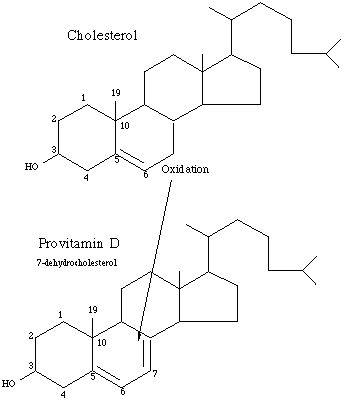Vitamin D3, not D2 is important
Vitamin D3 is significantly more effective at raising the serum biological marker of vitamin D status than vitamin D2 when given at standard doses in everyday food and drink, say UK researchers — findings that could have major implications for both current guidelines and the supplement industry.
In a randomized controlled trial of vitamin D supplements, vitamin D3, which is derived from animal products, was associated with significantly higher serum total 25-hydroxyvitamin D [25(OH)D] levels after 12 weeks than vitamin D2, which is plant-based and currently used in the vast majority of vitamin D supplements.
The research was published online July 5 in the American Journal of Clinical Nutrition.
“The importance of vitamin D in our bodies is not to be underestimated, but living in the UK it is very difficult to get sufficient levels from its natural source, the sun, so we know it has to be supplemented through our diet,” explained lead author Laura Tripkovic, PhD, department of nutritional sciences, University of Surrey, Guildford, UK, in a press release.
She added, “Our findings show that vitamin D3 is twice as effective as D2 in raising vitamin D levels in the body, which turns current thinking about the two types of vitamin D on its head.”
“Those who consume D3 through fish, eggs, or vitamin D3-containing supplements are twice as likely to raise their vitamin D status [compared with those] consuming vitamin D2-rich foods, such as mushrooms, vitamin D2-fortified bread, or vitamin D2-containing supplements, helping to improve their long-term health.”
Senior researcher Susan Lanham-New, PhD, head of the department of nutritional sciences at the University of Surrey, added: “This is a very exciting discovery that will revolutionize how the health and retail sector views vitamin D.”
“Vitamin D deficiency is a serious matter, but this will help people make a more informed choice about what they can eat or drink to raise their levels through their diet.”
Approached for comment, Robyn Lucas, MD, PhD, College of Medicine, Biology and Environment, Australian National University, Canberra, told Medscape Medical News: “I do think that this study really does show that vitamin D2 doesn’t raise total 25(OH)D levels as effectively as vitamin D3.”
“Clearly that has implications for any food fortification,” she added, stressing that all vitamin D supplements in Australia are vitamin D3-based.
Dr Lucas continued, “Personally, I think the evidence suggests that it is only quite severe vitamin D deficiency that is problematic for health, so levels below say 30 nmol/L. In Australia, those levels are uncommon because we have so much sun.”
“A higher proportion of the UK population will be in that category and should think about supplementation. This study shows that quite a modest dose of vitamin D3 was sufficient to raise levels well above 50 nmol/L. So it is also useful in showing that you really don’t need big doses to achieve and maintain sufficient levels of 25(OH)D.”




